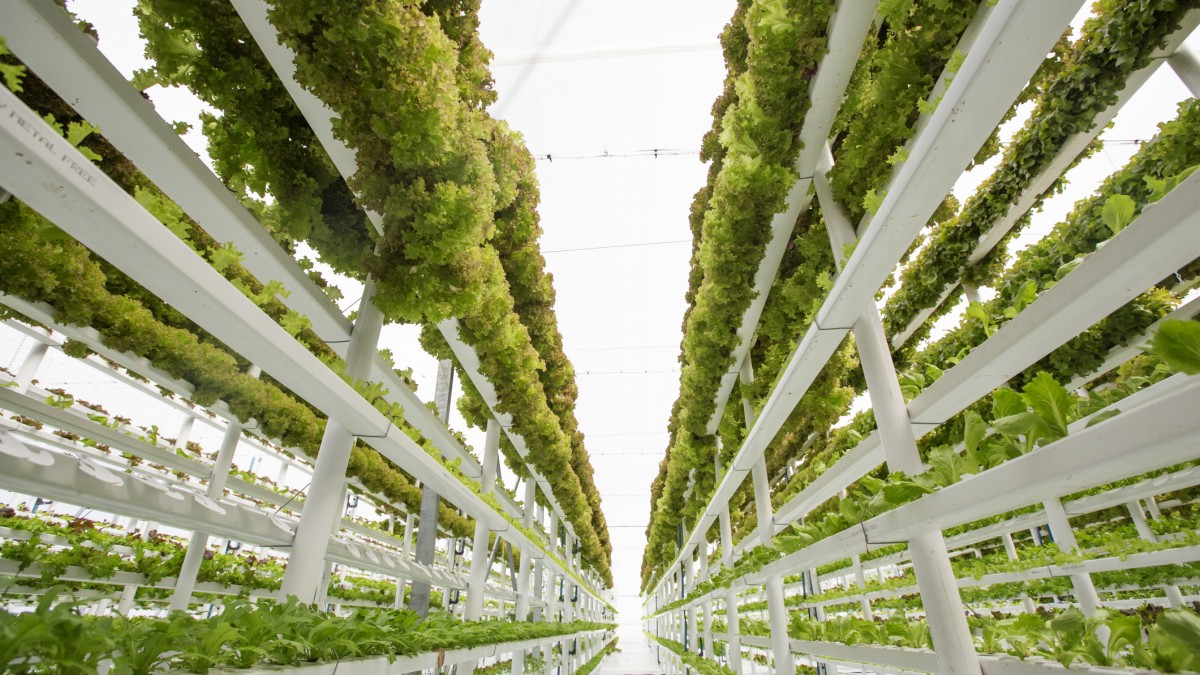Can vertical farms really feed the UK sustainably? New study weighs climate costs and benefits
Vertical farming offers a much-needed opportunity to secure food production in the face of climate change, but can it truly deliver a sustainable alternative to field-grown crops? A new study led by the University of Surrey has found that while vertical farms dramatically increase lettuce yields and use far less water, the carbon footprint still exceeds traditional lettuce farming – raising important questions about how the UK can balance food security with environmental responsibility.

The study, published in Food and Energy Security, is believed to be the first to fully account for soil emissions from field farming while comparing them to crops grown in a commercial vertical farm in the UK. Taking a cradle-to-store view of lettuce production, researchers analysed two UK farms – one on mineral soil and one on peat-based soil – and a farm in Spain, which together supply most of the UK’s lettuce. They then compared these with the vertical farm.
Results showed that vertical farms can deliver more than 20 times the yield of field farms – around 97 kilograms per square metre compared with just 3.3 kilograms. Water use is also around eight times lower compared to Spanish land farms, where irrigation demands are high (0.9 m³/kg lettuce in vertical farms compared with up to 7.3 m³/kg in Spain).
However, the greenhouse gas emissions remain higher with vertical farming. Even when powered by renewable electricity, vertically farmed lettuce produced about 0.93 kilograms of greenhouse gases for every kilogram grown, compared with 0.57 kilograms for UK field farms.
Much of the carbon impact was linked to the high energy demands of vertical systems and jute fibre plugs – fibrous blocks made from jute stems that are used to support and grow the plants instead of soil. Researchers found that switching to alternative materials, such as coconut coir, could cut the land footprint of vertical farms by more than 95 per cent – underscoring clear opportunities to reduce their environmental cost.
The research highlights that while vertical farming is not yet the most sustainable option for lettuce production, innovations in energy and materials could make it a crucial part of future food security in the UK, particularly as climate change and water scarcity threaten traditional growing regions like Spain.
The study was funded by the Biotechnology and Biological Sciences Research Council (BBSRC) and the Engineering and Physical Sciences Research Council (EPSRC).
###
Notes to editors
- Michael Gargaro is available for interview; please contact mediarelations@surrey.ac.uk to arrange.
- The full paper can be found https://onlinelibrary.wiley.com/doi/epdf/10.1002/fes3.70117
- Headshot images of Michael and Dr Harris are available upon request
- Learn more about our Institute for Sustainability
Related sustainable development goals



Share what you've read?
Featured Academics
Media Contacts
External Communications and PR team
Phone: +44 (0)1483 684380 / 688914 / 684378
Email: mediarelations@surrey.ac.uk
Out of hours: +44 (0)7773 479911

